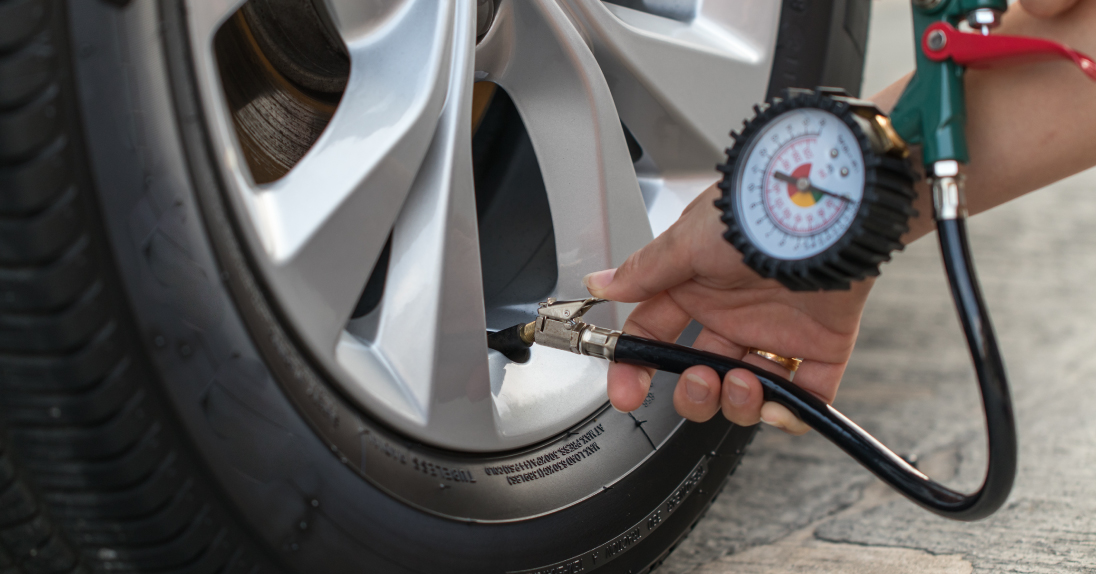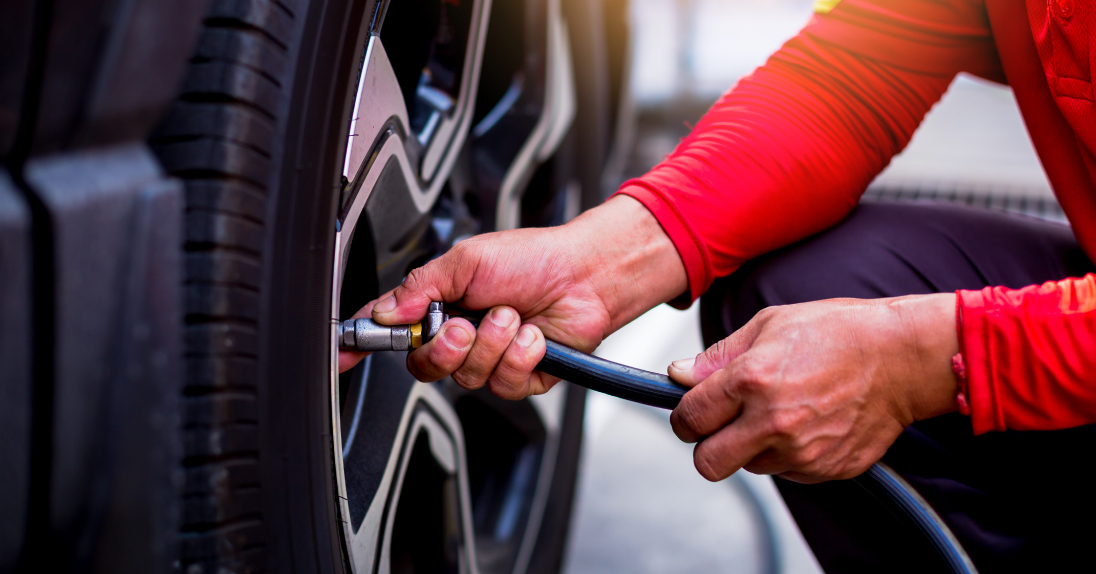When it comes to ensuring optimal performance, safety, and fuel efficiency of your vehicle, tyre pressure plays a crucial role. But it is often asked , "What PSI should my tyres be?", and in this friendly and descriptive blog post, we'll delve into the world of tyre pressure to help you understand the ins and outs of determining the ideal PSI for your tyres. What is PSI in Tyres?
Tyres rely on adequate air pressure measured using pounds per square inch known as PSI Tyre pressure is specifically important to support the weight, road grip of your vehicle and smooth driving experiences. .Essential benefits of maintaining correct PSI include contributing directly to handling quality and stability. Correct PSI also helps maintain steering control and improves traction, while ensuring optimum contact with road surfaces.. It is also important to note that under-inflated tyres cause an increase in rolling resistance which leads to increase in fuel consumption. Over-inflated tyres on the other hand reduces road contact. Finally, correct tyre pressure prevents uneven wear out which contributes to tyre’s lifespan.

A variety of factors influence determining what pressure to inflate your tyres with – including things like make & model of car you drive - alongside certain heat changes. A few key methods exist that one can utilize to test out a suitable consistency: When cross-checking many sources together carefully reviewing information from both the auto maker & also any information published by the tyre manufacturer themselves will prove most efficient.
Your concerns will ideally be resolved by those highly trained technicians at a variety of auto service centres who can provide clear interpretation of manuals prepared by tyre and car manufacturers who give information about size, load-carrying capacity while considering your chosen tyre construction.
If you’re still unsure, don’t hesitate to turn to reliable sources even if the even with available explanations and detailed instructions doesn't seem conclusive.
Perhaps start by consulting a qualified tyre professional as your vehicle's ideal PSI may vary based on the model of your car.
It's essential to keep in mind that optimal performance assumes cold tyres when adjusting pressures for better performance. Make sure your tyres are cold before adjusting pressures.
Here's a general overview of recommended tyre pressures for different vehicle types.
It's important to remember that these are general guidelines, and the specific recommendations for your vehicle may differ. Always refer to the manufacturer's guidelines to ensure accurate and appropriate tyre pressure.
While the manufacturer's recommendations provide a starting point, there are several factors to consider when determining the ideal tyre pressure for your vehicle.
The amount of weight your vehicle carries affects tyre pressure. If you frequently carry heavy loads or additional passengers, you should use the pressure given by the manufacturer for high-load.
Also, different driving conditions may require adjustments to the tyre pressure. For example, if you frequently drive on rough or uneven terrain, slightly lower tyre pressures can provide better traction and absorb shocks. However, it's important not to deviate too far from the recommended range to avoid compromising safety and tyre wear.
Temperature fluctuations can affect tyre pressure as well. Warmer temperatures cause the air inside the tyres to expand, increasing pressure, while colder temperatures cause the air to contract, leading to decreased pressure. However, you should not change the PSI depending on the weather, as there is one regular number you should stick to.

Maintaining the correct tyre pressure has a significant impact on your vehicle's performance and safety. Properly inflated tyres ensure optimal traction, handling, and braking performance, reducing the risk of accidents. Adequate tyre pressure enhances stability, especially during emergency maneuvers, allowing you to maintain control of your vehicle. The right tyre pressure provides the necessary support and grip, resulting in precise steering control and improved handling. This is particularly important when navigating corners or uneven road surfaces.
Correctly inflated tyres contribute to a smoother and more comfortable ride by absorbing road vibrations and reducing the impact of bumps and potholes. You'll experience less jarring and a more controlled ride. Underinflated or overinflated tyres can negatively impact fuel efficiency. Maintaining the recommended tyre pressure reduces rolling resistance, allowing the vehicle to move more efficiently and improving fuel economy.
Properly inflated tyres experience even wear across the tread surface, extending their lifespan. Underinflated tyres tend to wear more quickly on the edges, while overinflated tyres wear more in the center. By maintaining the correct tyre pressure, you'll maximize the longevity of your tyres and save money on replacements.
Determining the ideal PSI for your tyres is essential for optimal performance, safety, and fuel efficiency. By referring to the manufacturer's recommendations, considering factors such as load, driving conditions, and temperature changes, and regularly checking and adjusting your tyre pressure, you can ensure that your tyres are in their sweet spot. Remember, proper tyre pressure is the key to a smooth, controlled, and enjoyable driving experience. So, take the time to find that perfect balance and let your tyres pave the way for your exciting journeys on the road ahead!